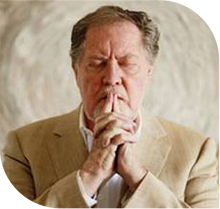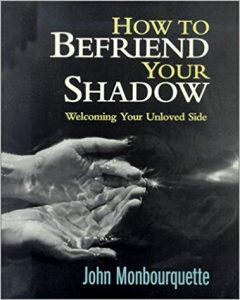Befriending our Shadow and Not Judging
(2 Kg 17:5-8; 13-15, 18; Ps 60; Mt 7:1-5)
**********************************************
Two illiterate woodsmen, Bob and Pat, who were unable to read or write, would sign their names with an “X” when required. One day they decided to go to the big city for a break. Once there, they thought they would go to a nightclub. However, a doorman stopped them at the door and told them they had to sign in. Bob immediately signed with an X and went in. Pat, however, signed with an O. The doorman asked him why he signed with an O? Pat replied immediately, “You can’t fool me. A place like this, I would never sign with my real name!”
This little story relates to the readings today that leave us with two related messages: Do not judge and the importance of self-awareness.
The first, do not judge, is one passage from scripture we would do well to take literally, like “love one another” or “forgive one another.” When we refuse to forgive, we cannot receive forgiveness. When we judge others, we will be judged.
I learned a lesson on not judging as a young priest in my first mission. I was upset a home where I dropped in to visit in the early afternoon was the scene of a drinking party. Intending to support the wife in the kitchen who was sober, I noticed a woman I did not know in a far corner. I was told she was from Montreal Lake and was staying with someone in the village. Reasoning we had enough problems already with adding one more, I was angry at her for even being there. On the way out, however, she had moved and I had to go right by her. Still resentful, I made myself stop to greet her. She shared part of her story, including an abusive relationship and being locked in the trunk of a car. As I left to go jogging, she said she wanted to talk some more, but wanted to sober up first, and would then come that evening to the rectory for a visit.
As I jogged back into the village, I heard an explosion, ran faster and came to a house on fire. Apparently, the furnace had exploded. When I asked if anyone was inside, I was told the family had escaped, but a girl from Montreal Lake was sleeping downstairs and never made it out. I was shocked and felt partly guilty – after we parted she left the party to sober up and died in that fire. At the same time, I was grateful for the brief conversation we did have, a glimmer of faith and hope it may have given her, and the lesson it taught me – not to judge another person without walking a mile in their moccasins.
The second message is related to the first: not judging is being able to see the log in our own eye, rather than the splinter in the eye of the other. That involves self-awareness, which is really the key to personal growth and healing.
Noted speaker Franciscan Richard Rohr began a retreat to the Oblates in Saskatoon with the sentence, “You are who you are who you are – what are you afraid of?” That statement shocked me, as at that stage in my life I really did not know myself and feared that if others really got to know me, they might not like me. My sister-in-law told me once that I was afraid to love and be loved, and deep down I knew that to be true.
An obstacle to truly knowing ourselves is fear and denial in all its forms. The log in the eyes of the Israelites in the first reading is idolatry and stubborn self-will. They were always resisting the will of God in their lives, and wanting to do everything their own way, which always got them into trouble. The log in the eye of the Pharisees and scribes in the New Testament is unbelief, and hypocrisy. Those two sins are what bothered Jesus the most about them, sins they consistently refused to see in themselves.
The real insidious feature of denial and blame is we project onto others and see in them, what we fear and refuse to see, face and deal within ourselves. Chances are what bothers us in someone else, is precisely what we have refused to see in ourselves. We can make others, most often our loved ones, husbands, wives, children, siblings – the scapegoat for our running away from ourselves and our own truth.

Jean Monbourquette OMI
The late John Monbourguette OMI, psychologist, author and priest, wrote a book entitled How to Befriend Our Shadow. The wonderful reality of our shadow is it is not something we need to fear or suppress – it is just part of our human reality, our false self, that begs to be recognized, acknowledged, respected, named, shared and ultimately, healed. But we can’t heal what we can’t feel or acknowledge. I am sure Jesus was referring precisely to this need to befriend our shadow when he encouraged us over and over again to “not be afraid.” Our shadow will be painful emotions, negative attitudes and defects of character, and even our hidden addictions – all in need of healing.

I finally came to see a log in my own eye in a mission my brother Oblate and I were trying to co-pastor. One evening after a pastoral care meeting at the hospital with the pastoral team, I noticed my he was agitated, so I suggested we dialogue, Marriage Encounter style. When I received the note from him, I read: “At the meeting today, I felt no matter what I said or did, they would do what you want anyway.” Shocked, I realized for the first time I had a tendency to control, to give off the impression I was really in charge, in spite of our effort to co-pastor the parish.
At least I was able to befriend this shadow and see this awareness as a grace, as it allowed me to deal with this defect of character, to talk about it, pray about it and to eventually receive some healing from it.
In the Eucharist, God accepts us as we are, forgives us, heals us, and empowers us to go out and spread that Good News of God’s love.
So remember, there are two clear messages from the readings today: to not judge others, and to make that inner journey into greater self-awareness and knowing ourselves, to befriend our shadow.




Thanks for the wonderful homilies about befriending our shadow and be able to know who we are and what kind of person we have become. We have to know who are and being able to forgive ourselves and love ourselves. God created each person differently and he is the one that knows us and understands us. Do we know ourselves and understand ourselves. God accepts us for who we are , forgives us and heal us . He will never judge us for our wrongs and what kind of person we have become. So, we should do the same in respecting other people for who they are and loving others and forgiving them. Do not judge other people . Amen! Gracias !
Well thanks for the teachings and messages these days and keep it up . Bishop Lavoie take care of yourself.